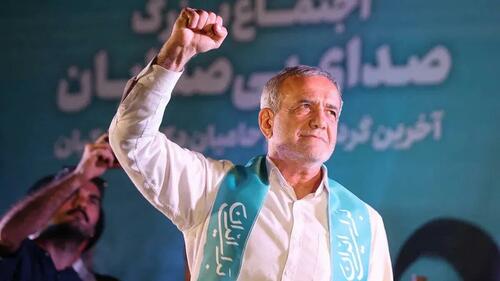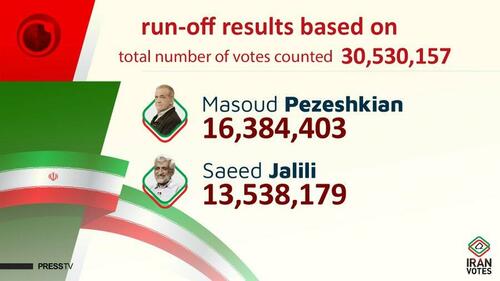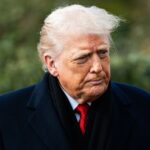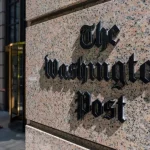
The reformist and 'moderate' Masoud Pezeshkian has been elected as Iran's new president, defeating his hardline conservative rival Saeed Jalili, after gaining 53.3% of the 30+ million votes counted.
While Jalili was seen as the status quo candidate, by and large expected to continue his predecessor's policies, Pezeshkian, a heart surgeon and member of the Iranian parliament, has vowed to seek an end to the Islamic Republic's global isolation.

As part of this push, the 71-year old has called for "constructive negotiations" with the West on Iran's nuclear program, in hopes getting US-led sanctions removed or at least softened. Iran has on a monthly basis been expanding its Uranium enrichment and purity, bringing it closer to the ability to produce a nuclear weapon if it decides to do so. Israel has meanwhile threatened preemptive attack if this happens.
After years of intermittent anti-government protests, including the months-long 'hijab protests' which were triggered by a young woman's death at the hands of the morality police, Dr. Pezeshkian is promising "unity and cohesion" between the government and population.
He has personally long been critical of the morality police, which boosted his popularity among younger and professional young family circles. Already young people have been seen celebrating in the streets of major cities, in hopes of a new era for Iran.
Pezeshkian's victory is the result of a run-off after the June 28 first round election failed to result in a clear majority for either candidate. June 28 saw a historically low voter turnout of just 40% - and was a little over a month after the late President Ebrahim Raisi's helicopter crashed in northern Iran near the border with Azerbaijan. Raisi and his Foreign Minister Hossein Amirabdollahian were killed, along with other top officials.
According to the numbers from the run-off which secured Pezeshkian's victory:
With all ballots counted, Pezeshkian secured 16.4 million votes, while Jalili received 13.5 million votes, Press TV reports. Turnout was 30.5 million, or 49.8% of the 61 million eligible voters, according to a final update at 6:45 am local time (3:15 GMT).
Iran's Foreign Minister announced Saturday, "The great nation of Iran once again stood proud in the test of loyalty to the holy system of the Islamic Republic and protection of our beloved Iran. Now is the season of empathy, unity and national cohesion for progress and ever-increasing authority of the Islamic Republic of Iran." Very quickly on the news, the leaders of China, India and Russia were among the first to congratulate Pezeshkian on his victory.
Upon the first round of voting, it became increasingly apparent that regions were choosing their candidate largely along ethnic lines...
Another voting pattern map created by @bbcpersian indicates that ultra conservative Saeed Jalili has won in Persian majority provinces. With few exceptions, non Persian voters in border provinces have overwhelmingly voted for reformist and ethnic Azerbaijani Masoud Pezeshkian. pic.twitter.com/hIn482Mkf6
— Ahmad Hashemi (@MrAhmadHashemi) July 1, 2024
Below is a brief partial backgrounder on the newly elected Iranian president via Anadolu Agency...
* * *
A relatively low-profile political figure, Pezeshkian served as health minister in the government of Mohammad Khatami (2001-2005) and has represented the northwestern city of Tabriz in the Iranian parliament since 2008. A cardiologist by practice, Pezeshkian previously headed the Tabriz University of Medical Sciences, one of the leading medical institutions in northern Iran.
His two previous unsuccessful bids for the presidency came in 2013 and 2021, respectively. In 2013, he withdrew from the presidential race in the later stages in favor of former President Hashemi Rafsanjani; in 2021, his candidacy was rejected by the Guardian Council, the country’s top vetting body.
As the only reformist candidate in the race this time around, backed by the country's leading reformist coalition, Pezeshkian engaged in hectic campaigning in recent weeks. His campaign was bolstered by the presence of former reformist politicians and ministers, including Javad Zarif, who served as foreign minister for two terms under former President Hassan Rouhani.
The reformist and ‘moderate’ Masoud Pezeshkian has been elected as Iran’s new president, defeating his hardline conservative rival Saeed Jalili, after gaining 53.3% of the 30+ million votes counted.
While Jalili was seen as the status quo candidate, by and large expected to continue his predecessor’s policies, Pezeshkian, a heart surgeon and member of the Iranian parliament, has vowed to seek an end to the Islamic Republic’s global isolation.

As part of this push, the 71-year old has called for “constructive negotiations” with the West on Iran’s nuclear program, in hopes getting US-led sanctions removed or at least softened. Iran has on a monthly basis been expanding its Uranium enrichment and purity, bringing it closer to the ability to produce a nuclear weapon if it decides to do so. Israel has meanwhile threatened preemptive attack if this happens.
After years of intermittent anti-government protests, including the months-long ‘hijab protests’ which were triggered by a young woman’s death at the hands of the morality police, Dr. Pezeshkian is promising “unity and cohesion” between the government and population.
He has personally long been critical of the morality police, which boosted his popularity among younger and professional young family circles. Already young people have been seen celebrating in the streets of major cities, in hopes of a new era for Iran.
Pezeshkian’s victory is the result of a run-off after the June 28 first round election failed to result in a clear majority for either candidate. June 28 saw a historically low voter turnout of just 40% – and was a little over a month after the late President Ebrahim Raisi’s helicopter crashed in northern Iran near the border with Azerbaijan. Raisi and his Foreign Minister Hossein Amirabdollahian were killed, along with other top officials.
According to the numbers from the run-off which secured Pezeshkian’s victory:
With all ballots counted, Pezeshkian secured 16.4 million votes, while Jalili received 13.5 million votes, Press TV reports. Turnout was 30.5 million, or 49.8% of the 61 million eligible voters, according to a final update at 6:45 am local time (3:15 GMT).
Iran’s Foreign Minister announced Saturday, “The great nation of Iran once again stood proud in the test of loyalty to the holy system of the Islamic Republic and protection of our beloved Iran. Now is the season of empathy, unity and national cohesion for progress and ever-increasing authority of the Islamic Republic of Iran.” Very quickly on the news, the leaders of China, India and Russia were among the first to congratulate Pezeshkian on his victory.
Upon the first round of voting, it became increasingly apparent that regions were choosing their candidate largely along ethnic lines…
Another voting pattern map created by @bbcpersian indicates that ultra conservative Saeed Jalili has won in Persian majority provinces. With few exceptions, non Persian voters in border provinces have overwhelmingly voted for reformist and ethnic Azerbaijani Masoud Pezeshkian. pic.twitter.com/hIn482Mkf6
— Ahmad Hashemi (@MrAhmadHashemi) July 1, 2024
Below is a brief partial backgrounder on the newly elected Iranian president via Anadolu Agency…
* * *
A relatively low-profile political figure, Pezeshkian served as health minister in the government of Mohammad Khatami (2001-2005) and has represented the northwestern city of Tabriz in the Iranian parliament since 2008. A cardiologist by practice, Pezeshkian previously headed the Tabriz University of Medical Sciences, one of the leading medical institutions in northern Iran.
His two previous unsuccessful bids for the presidency came in 2013 and 2021, respectively. In 2013, he withdrew from the presidential race in the later stages in favor of former President Hashemi Rafsanjani; in 2021, his candidacy was rejected by the Guardian Council, the country’s top vetting body.
As the only reformist candidate in the race this time around, backed by the country’s leading reformist coalition, Pezeshkian engaged in hectic campaigning in recent weeks. His campaign was bolstered by the presence of former reformist politicians and ministers, including Javad Zarif, who served as foreign minister for two terms under former President Hassan Rouhani.
Loading…






